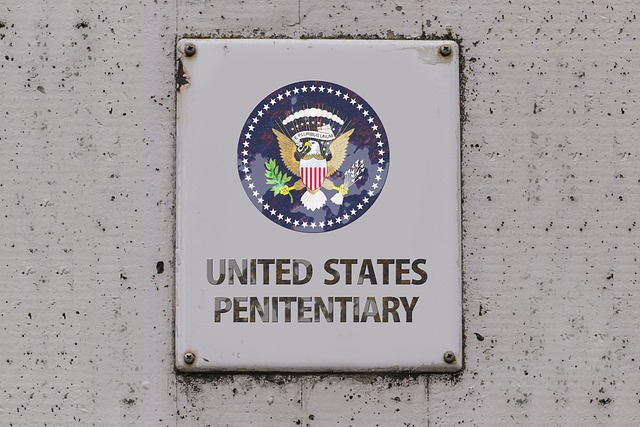Millennial DUI Awareness Campaigns tackle elevated alcohol-related driving risks among 21-35 year olds, leveraging digital platforms for education and peer support. These campaigns utilize social media like Instagram, TikTok, and Snapchat to share authentic stories, engage with interactive content, and highlight community support for recovery. Support groups provide safe spaces for connection and emotional support, complementing campaign efforts to reduce DUI rates, improve mental health outcomes, and foster a culture of accountability among millennials.
In today’s digital era, understanding millennial DUI statistics is crucial. This generation faces unique challenges when it comes to alcohol-impaired driving, with rates higher than expected. Support groups play a vital role in their recovery journey.
This article explores the power of community and shared experiences through support groups for millennials. We delve into strategies for effective Millennial DUI Awareness Campaigns, offering insights on designing campaigns that resonate and educate this demographic.
- Understanding Millennial DUI Statistics: Unveiling the Challenge
- The Role of Support Groups in Millennial Recovery
- Designing Effective DUI Awareness Campaigns for Millennials
- Building Community and Fostering Healing through Shared Experiences
Understanding Millennial DUI Statistics: Unveiling the Challenge

DUI (Driving Under the Influence) incidents among millennials, aged between 21 and 35, present a significant challenge in many parts of the world. Statistical data reveals alarming trends; according to research, millennials are more likely to be involved in alcohol-related driving offenses compared to older generations. This is a pressing issue that demands attention, especially considering the potential long-term consequences for both individuals and society as a whole.
Millennial DUI Awareness Campaigns play a pivotal role in combating this problem by increasing visibility and understanding of the risks associated with drinking and driving. These campaigns utilize various platforms to educate young adults about responsible alcohol consumption and alternative transportation options. By shedding light on the facts and personal stories, they aim to create a culture of accountability and support, ultimately contributing to reduced DUI rates among millennials.
The Role of Support Groups in Millennial Recovery

Support groups play a pivotal role in the recovery journey for Millennials facing challenges like substance abuse or mental health issues. These peer-led gatherings provide a safe and non-judgmental space, allowing individuals to connect with others who have experienced similar struggles. In the context of Millennial DUI Awareness Campaigns, support groups offer a unique platform to address the specific concerns of this demographic, often targeted by such campaigns due to their higher at-risk rates.
These groups facilitate open discussions, foster a sense of community, and encourage accountability. Millennials can share their stories, learn from one another’s experiences, and gain valuable insights into maintaining sobriety or managing mental health. By participating in support groups, they gain access to emotional support, practical advice, and strategies for navigating the complexities of modern life while prioritizing their well-being, ultimately contributing to more successful recovery outcomes.
Designing Effective DUI Awareness Campaigns for Millennials

Millennials, born between 1981 and 1996, make up a significant portion of today’s driving population. They face unique challenges when it comes to understanding and preventing DUI (Driving Under the Influence) incidents. Designing effective Millennial DUI Awareness Campaigns requires a strategic approach that leverages their digital engagement and preference for authentic, relatable content. Social media platforms like Instagram, TikTok, and Snapchat can be powerful tools to capture their attention by sharing real-life stories of recovery and the consequences of impaired driving.
These campaigns should also incorporate interactive elements such as online quizzes, challenges, or peer support forums to encourage active participation. Given millennials’ interest in social causes, aligning these campaigns with broader safety initiatives and showcasing community support for recovery can be highly effective. Additionally, incorporating educational resources that highlight the impact of DUI on long-term goals like career advancement, relationships, and financial stability can resonate deeply with this demographic.
Building Community and Fostering Healing through Shared Experiences

In today’s digital era, Millennial DUI Awareness Campaigns have been instrumental in breaking down barriers and building bridges within recovery communities. These campaigns, tailored to resonate with younger generations, leverage social media and online platforms to create a sense of belonging and shared purpose. By fostering open dialogues about the challenges and triumphs of addiction, they normalize conversations that were once stigmatized. This newfound openness paves the way for individuals in recovery to connect with peers facing similar struggles, creating a supportive environment where everyone feels understood and valued.
Through online support groups and interactive forums, people can share their stories, exchange strategies, and offer encouragement round-the-clock. This continuous connection encourages accountability, enhances emotional well-being, and accelerates the healing process. The shared experiences become a powerful tapestry of resilience, inspiring individuals to persevere on their journeys to sobriety while recognizing that they are not alone in their fight against addiction.
Millennial DUI statistics highlight a pressing need for innovative solutions, and support groups emerge as a powerful tool in their recovery. By fostering community and shared experiences, these groups offer a sense of belonging and understanding, crucial elements in the healing process. Incorporating effective Millennial DUI Awareness Campaigns that engage and educate this demographic is essential to reducing recurring incidents. Through collaborative efforts, we can create a supportive landscape that empowers millennials to make positive choices and build a brighter future, free from the impacts of impaired driving.






